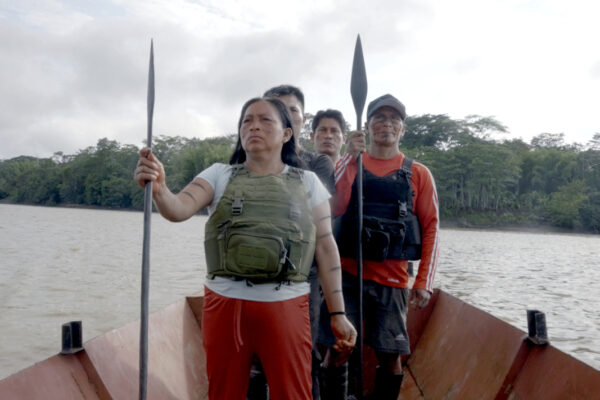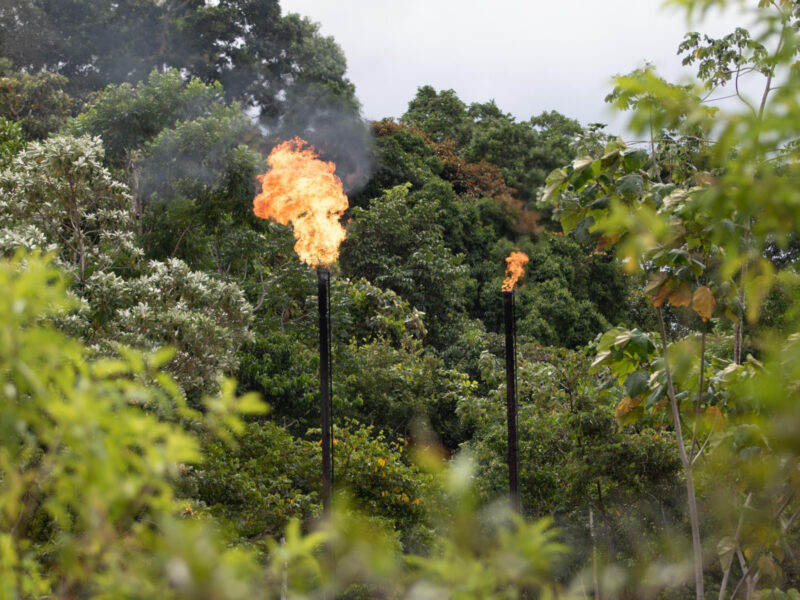Institutions request that a state of emergency be declared for the province of Loreto
The Peruvian National Coordinator for Human Rights (CNDDHH) has requested numerous United Nations institutions to intercede on behalf of the rights of indigenous peoples before the Peruvian government given the Marañón River oil spill this past June 19th.
In the letter, Ronald Gamarra, executive secretary of the Coordinator, expressed his concern for the current situation faced by the Cocama, Kichwa, and Urarina peoples, who use water from the river for drinking, cooking, cleaning, and fishing.
The Coordinator maintains that “despite the gravity of the situation, three days after the accident, the response of Peruvian authorities does not seem sufficient for guaranteeing the rights of the affected persons.”
Given this, they have asked that the government “immediately adopt the necessary measures to ensure that the affected populations are provided potable water to satisfy their basic needs.”
They also requested that the Peruvian government “ensure the necessary measures for neutralizing the environmental impacts of the spill, with full transparency and information accessible to the affected indigenous peoples.”
The document is addressed to the commissioners of the Committee on the Elimination of Racial Discrimination (CERD) and James Anaya, Special Rapporteur on the Situation of Human Rights and Fundamental Freedoms of Indigenous Peoples.
The request was also received by Okechukwu Ibeanu, Special Rapporteur on toxic and hazardous waste products, and Paul Hunt, Special Rapporteur on the Right to Health.
The request was also addressed to Felipe González, President of the Inter-American Commission on Human Rights (IACHR) and the Inter-American Rapporteur on the rights of Indigenous Peoples of the IACHR.
As this article went to press, United Nations indicated that it is currently overseeing the drafting of an urgent appeal to the Peruvian state that would be jointly signed by several rapporteurs.
Government requested to declare a state of emergency from ecological disaster
In a public statement, various social organizations expressed their discontent with the government’s efforts to play down the environmental damage caused by the oil spill.
The groups wonder “if the Ministry of Energy and Mines affirm that there are 400 barrels of spilt oil,” then why is the entire width of the Marañón River contaminated?
They pointed out that the oil spills are large and have contaminated the surrounding areas of San José de Saramuro and San José de Parinari, including flood-prone areas on the route of Saramuro to Iquitos to Nauta.
As such, they are urging the regional government of Loreto and the central government of Peru to declare a state of emergency due to ecological disaster for the Loreto province.
Additionally, they requested that Peruvian State allocate the necessary budget towards offsetting the environmental damage and providing food and health care to the affected population.
The general public, moreover, was asked to remain alert and in solidarity with local communities given what happened.
The statement was signed by an extensive network of social institutions, including the Commission on Justice and Peace – Human Rights of the Apostolic Vicariate of Iquitos (CJPDHVAI), the Amazonian Center of Anthropology and Practical Application (CAAAP), and the Loretan Advocacy Network.
Also among the signatories was the Regional Organization of the Indigenous Peoples of the Oriente (ORPI), the Indigenous Quichua Federation of the Pastaza (FEDIQUEP), the District Municipality of Parinari, the Federation of Native Communities of the Corrientes (FECONACO), the Parish “Santa Rita de Castilla” of the Marañón River, and the Association of Conservation and Development of San Pablo de Tipishca (ACODECOSPAT).
The Organization of Students of the Indigenous Peoples of the Peruvian Amazon (OEPIAP), the General Confederation of Workers of Peru (CGTP), and the Bilingual Teacher Training Program of the Peruvian Amazon (FORMABIAP), were also included, among others.
En español aquí – English translation by Amazon Watch












